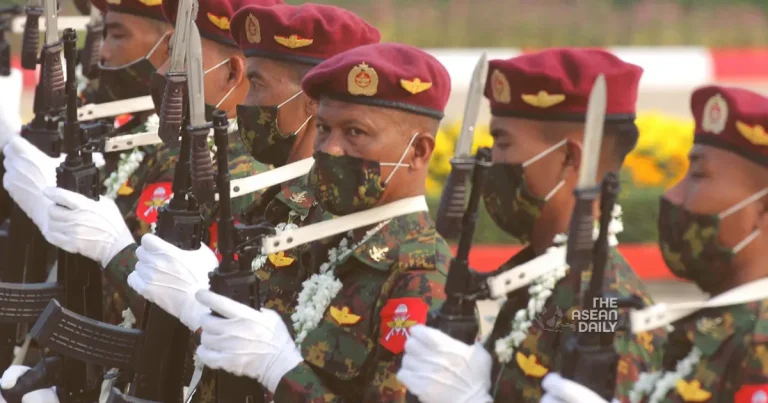2-1-2024 (YANGON) In an unprecedented alliance against Myanmar’s military junta, internal dissent and defections are emerging as formidable challenges to the regime’s grip on power. The junta, which seized control in a 2021 coup, is now confronted with an increasingly resilient opposition. One unexpected aspect of this resistance involves security forces turning into clandestine spies, secretly aiding the armed resistance.
Yan, a 24-year-old former Myanmar police officer, revealed that he risked his life for about two years, posing as a loyal servant of the junta while covertly gathering intelligence for the opposition. Speaking from a refuge near the Myanmar border after fleeing the country in April, Yan emphasized the perilous nature of his mission and chose not to disclose his full name due to ongoing threats to his life.
The junta, facing an internal challenge, has not responded to Reuters’ requests for comments. Despite the inherent risks, some security forces members sympathetic to the rebels have been exposed through pro-military social media channels, indicating the presence of dissent within the ranks.
While opposition groups acknowledge the difficulty in quantifying the number of defectors aiding them, they emphasize the crucial role these individuals play. These informants provide intelligence on military supply transport and other strategic details, enabling the opposition to plan and execute attacks effectively.
Yan, who joined the police force in late 2020, grew disillusioned after witnessing the arbitrary arrest of protesters during a brutal crackdown following the coup. Feeling ostracized and fueled by a desire to resist unjust orders, Yan connected with opposition groups through his brother, who had fled the country.
Referring to security force members aiding the resistance as “watermelons” – appearing loyal on the outside but harboring opposition sentiments internally – Yan highlighted their clandestine efforts. He gathered and shared information on the movements of senior junta figures, as well as details about police numbers, fuel, and weapons in various locations.
While Yan’s account could not be independently verified, it aligns with the growing trend of internal dissent within the armed forces. Some analysts estimate that up to 8,000 people have defected from the security forces, dealing a blow to the junta’s recruitment efforts. Military battalions, once comprising several hundred members, have dwindled to around 130, a significant decline that analysts attribute to defections.
Despite the challenges faced by defectors in foreign countries, their contribution to the opposition remains substantial. Yan and his family, for instance, have started a business producing and selling fabric adorned with leaves from their homeland. While acknowledging the sacrifices made, Yan stressed that his actions were a small part of a broader resistance effort against the junta’s oppressive rule.




